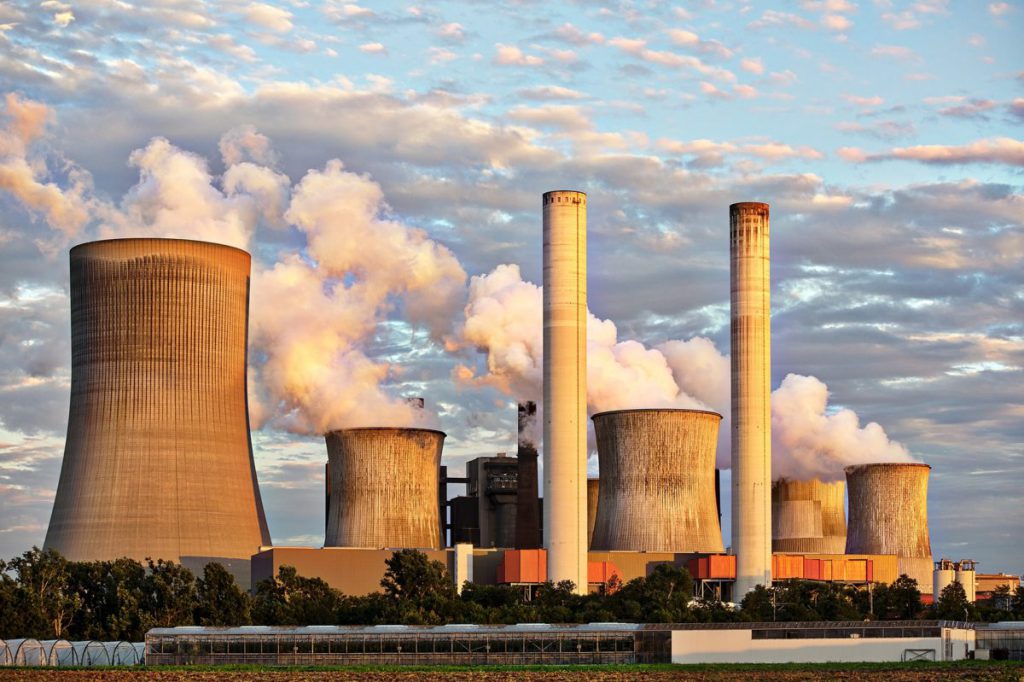Energy giant RWE backs Germany’s bad-bank plan for coal exit

RWE AG is backing a coal-exit plan that would see the German energy giant transfer some of its lignite assets and liabilities to a government-led firm, according to people familiar with the matter.
Hiving off some assets and the burden of cleaning up open-cast mines after they shut could facilitate an agreement to speed up the coal phase-out in Germany, said the people, who asked not to be named because the information is private. The model, if agreed on, follows the blueprint of the nuclear exit, where a state-run fund was set up to handle the disposal of atomic waste.
Germany’s new coalition wants to phase out coal by 2030, but bringing plans forward by eight years would require a new round of negotiations. Deliberations are in early stages, but mark a step forward for RWE, which has shied away from making statements on offloading lignite assets. RWE said talks with the government haven’t started, but added it supported an early coal exit.
“We don’t know anything more than what is in the coalition agreement,” RWE’s Chief Financial Officer Michael Muller said in a video interview on Feb. 1. “I think that’s one single sentence and it remains to be seen if what the government is pursuing is possible.”
RWE is under pressure from activist investor Enkraft Capital GmbH to dispose of its coal business, and an early exit determined by the German government would boost the company’s valuation — currently at a discount to its peers. Getting rid of lignite assets and liabilities tied to the foreclosure of open cast-mines would turn Germany’s largest electricity producer into a renewable energy giant.

Coal companies in Germany agreed two years ago to receive billions from the state to close all plants by 2038. Shutting assets earlier would require some further compensation, which could be achieved by allowing firms to offload the responsibility of environmental rehabilitation of mines to a foundation.
One of the formats being considered would see companies transfer money directly to the foundation in the amount equivalent to the estimated future cost of the clean-up and maintenance, one of the people said. With these funds, the foundation would manage the assets and finance the obligations resulting from the coal exit, which include pit water management, groundwater purification and securing the old shafts and tunnels.
If costs get higher than the companies anticipated, they would be covered by the government, the person said. The German Economic Ministry said it’s currently considering establishing a foundation that would be responsible for dismantling coal-fired power generation and restoration of mining areas.
“It is expected to take some time,” the ministry said in a statement to Bloomberg. “There are currently no discussions with companies about this.”
RWE has one of the largest renewable-energy portfolios among European utilities, but it still generates about a quarter of its power from lignite plants. The company is backing the idea of a foundation, but economics would need to be right, the people said.
An earlier coal exit could improve the company’s valuation, Muller said. Activist investor Enkraft Capital estimates the utility could double in value by closing and separating its lignite operations more quickly.
“RWE has the ambition to get to the 1.5 degree path of climate target and that would mean we also would need to bring forward the coal exit,” Muller said. “If you talk about the valuation, you can compare our multiples with the multiples of some peers, and there is some upside that will occur anyway over time.”
Exiting coal earlier could also generate revenues from the sale of carbon permits that RWE has previously purchased, analysts say.
(By Vanessa Dezem and Eyk Henning, with assistance from Isis Almeida)
{{ commodity.name }}
{{ post.title }}
{{ post.date }}




Comments